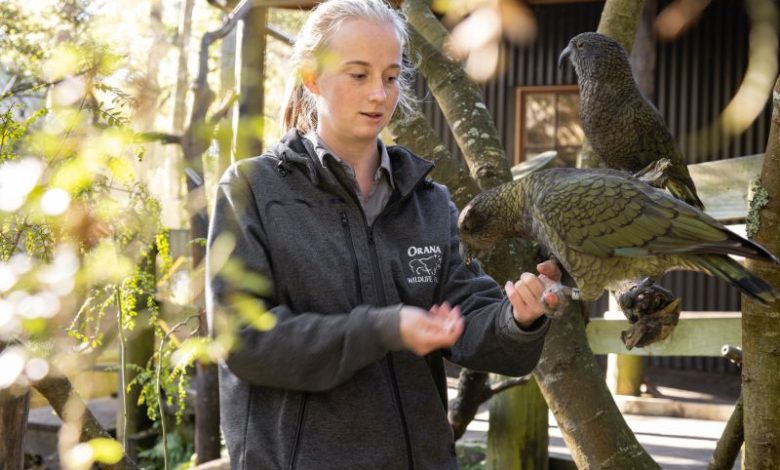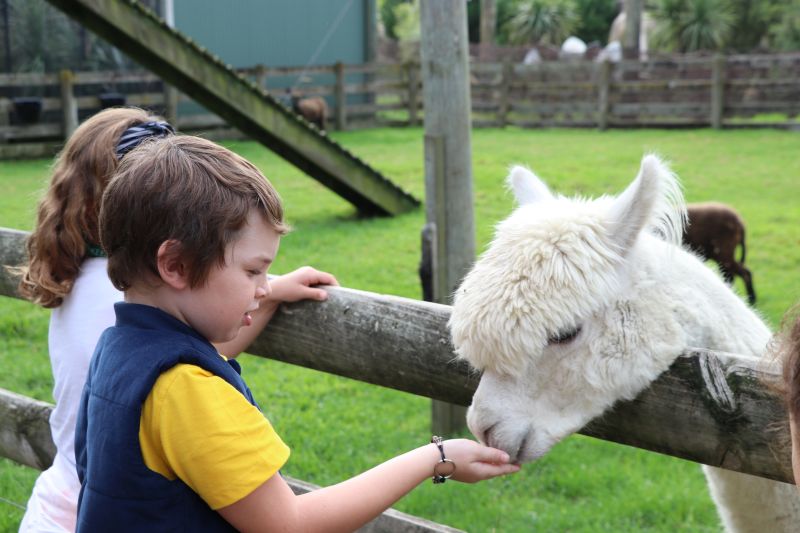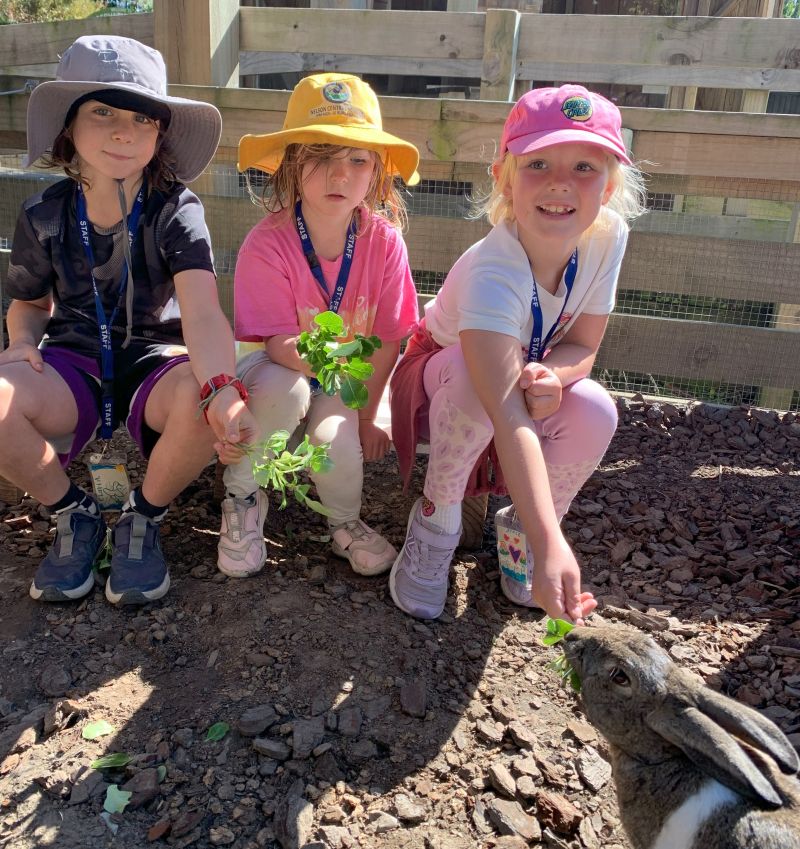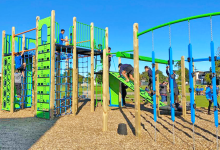Conservation, exploration and education at zoos and wildlife parks
An up close and personal animal encounter is not something your students will forget in a hurry.

Excursions to zoos and wildlife parks will expose tamariki to a range of animals and their habitats, helping to reinforce classroom learning on animals, as well as conservation and environmental protection, empathy and care for living creatures.
At times, people question the morality of keeping animals in enclosures in zoos. Well-run, reputable modern zoos and wildlife parks, though, are not a prison for animals. Zoos and wildlife parks play an important role in the care and conservation of many species, some of which are endangered and at risk of eradication in the wild. Many zoos and wildlife parks also act as animal hospitals, caring for sick and injured animals.
Read the latest print edition of School News HERE
Key to the work of conservation is education. Zoo staff are experts in their field, and can help empower the next generation to make decisions which will positively impact the environment, and potentially protect an animal’s habitat. Seeing an animal up close can make it real, especially for younger students. This in turn can help students understand the need to be environmentally responsible and mitigate habitat destruction.
One study found that educational outcomes are enhanced by the structure of zoos, where education and entertainment are merged. Exciting, interactive environments, zoos and wildlife parks show students that discovery is exciting, and learning is an adventure.
 Similar to other informal learning environments like museums and galleries, zoos and wildlife parks encourage unstructured exploration, and give students agency over their learning. Left to explore the space on their own, students will seek out exhibits which interest them, and form inquiry questions for further investigation. Conversations with educators, either at the zoo or in the classroom can help reinforce this independent inquiry.
Similar to other informal learning environments like museums and galleries, zoos and wildlife parks encourage unstructured exploration, and give students agency over their learning. Left to explore the space on their own, students will seek out exhibits which interest them, and form inquiry questions for further investigation. Conversations with educators, either at the zoo or in the classroom can help reinforce this independent inquiry.
Another study from the US National Library of Medicine found that guided tours of zoos raise students’ connection to nature, including an interest in plants and animals. The benefit was most pronounced in students with an initially low or medium level of connection to nature.
If your school group can’t make it to a zoo or wildlife park, some providers offer at-school experiences, brining wildlife to your students.
A sample of opportunities
Set in 185 hectares, Orana Wildlife Park is Aotearoa’s only open range zoo. The team is passionate about connecting ākonga with nature in unique biodiverse settings.
Orana’s education programmes provide truly authentic, inclusive and enriching learning experiences where tamariki can observe and learn about the plight of Aotearoa’s and the world’s endangered species. The experienced team develop bespoke programmes for Years 1 to 13 that support a diverse range of learning areas from the New Zealand curriculum. The team liaise closely with teachers pre-visit to ensure learning outcomes will be met by the programme content. Education programmes usually run for the duration of the school day, enabling facilitators to develop a strong rapport with their group to provide a deeply insightful and personal experience that cannot be replicated inside a classroom.
Popular inclusions are hand-feeding the majestic giraffe, meeting Aotearoa’s only gorillas and encountering mischievous kea. Key conservation actions that can be taken at home or school are incorporated into programmes to support knowledge and encourage discussion. The team at Orana are committed to inspiring tamariki, encouraging them to be kaitiaki of the natural environment and becoming confident, contributing future citizens.

School trips to Butterfly Creek provide students with an opportunity to explore and connect with nature while learning about a wide variety of animals and creatures. Located in Auckland, this destination is perfect for an educational day out, regardless of the weather, as 75 percent of its exhibits are undercover.
The tropical Butterfly House, home to more than 800 butterflies, offers an immersive experience for those interested in insects and lifecycles. Kiwi Forest, part of a national breeding program, provides a rare chance to see New Zealand’s national bird in a special nocturnal setting. At Buttermilk Farm, students can interact with friendly farm animals like goats, rabbits, alpacas, and guinea pigs.
A standout attraction is Dinosaur Kingdom, featuring more than 50 life-size models that roar and move, bringing prehistory to life for young palaeontologists. The Mythical Creatures exhibit supports students learning about myths and legends from around the world, showcasing dragons, serpents, and other legendary beings.
Butterfly Creek also offers several free animal encounters, including an impressive crocodile show. Schools can enhance their visit with 15-minute educational talks on topics such as dinosaurs, butterflies, kiwi, wētāpunga, or eels. Additionally, a wealth of free educational resources are available for download from their website.

Natureland Wildlife Trust offers an immersive educational journey tailored specifically for your students. The engaging programs offer interactive experiences and informative sessions designed to ignite curiosity and deepen understanding.
Step into the world of wildlife with captivating animal encounters, where students witness nature’s marvels and learn about habitats, behaviours, and adaptations. Delve into life’s processes through enriching lessons on reproduction, growth, and survival strategies. Trace the evolution of zoos and animal conservation efforts, gaining insights into the importance of preserving biodiversity. Explore New Zealand’s unique flora and fauna, celebrating its ecological heritage.
Hands-on activities provide students with immersive experiences, fostering active participation and deeper learning. From interactive games to guided explorations, every moment at Natureland is filled with discovery. To ensure accessibility, Natureland offers discounted rates for educational sessions, making it easier for schools and groups to benefit from their programs.
School holiday programmes include specialised workshops and themed activities catering to diverse interests and age groups. Engage with wildlife conservation initiatives, empowering students to become environmental stewards.









